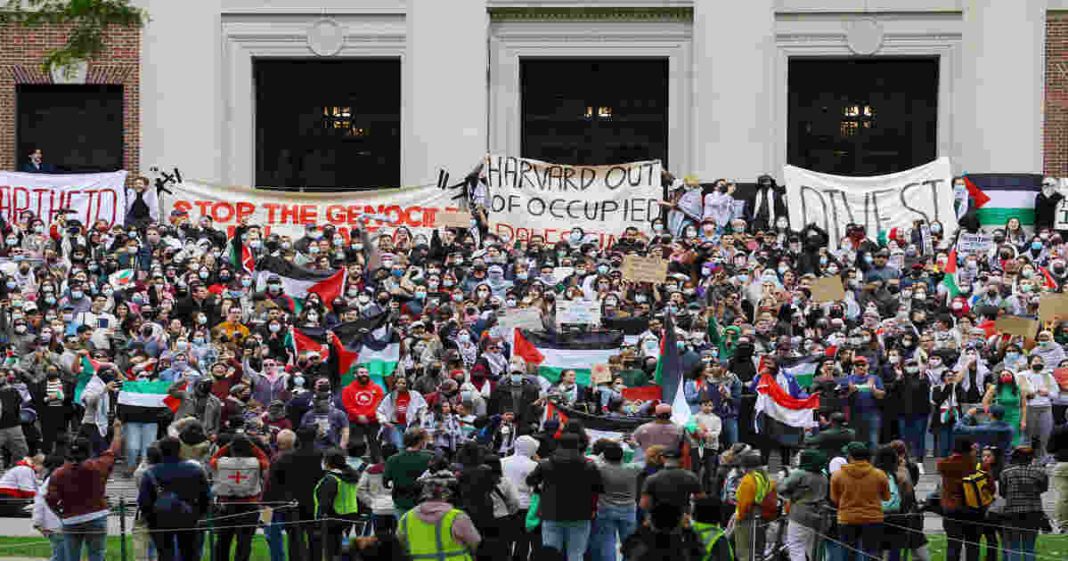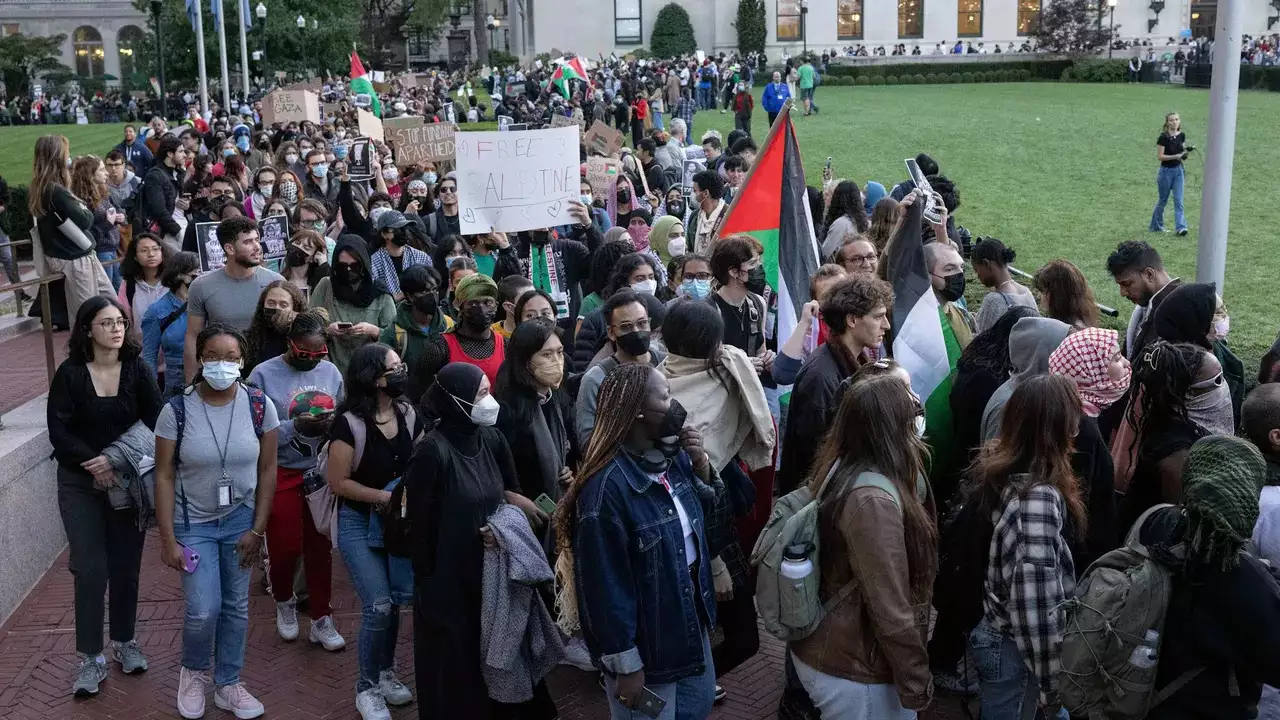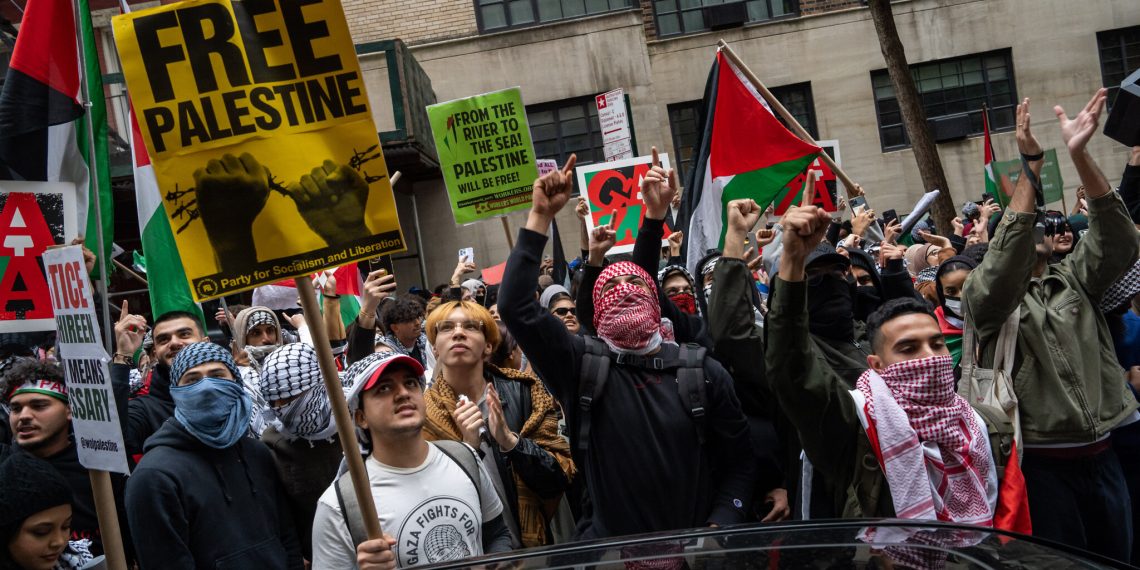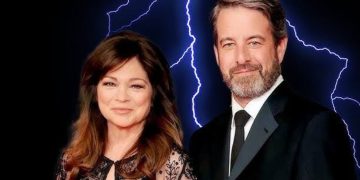Over the weekend, protests at U.S. universities intensified, with a notable escalation at UCLA where clashes erupted between pro-Israeli and pro-Palestinian demonstrators.
The size of the pro-Palestinian encampment expanded recently, drawing increased vocal opposition from counter-protesters on campus.
Despite maintaining peace until Sunday, tensions boiled over when some protesters breached barriers separating the factions, leading to physical altercations and verbal exchanges.

UCLA’s vice chancellor for strategic communications, Mary Osako, lamented the outbreak of violence, emphasizing the university’s history of peaceful protests. Campus police intervened, eventually dispersing the sparring groups.
Nationwide, similar demonstrations have unfolded in response to the Gaza conflict, echoing the encampments initiated by Columbia University students.
These protests, however, have faced opposition from university administrations, citing disruptions to academic activities and allegations of harassment and antisemitism.
The protesters demand a Gaza ceasefire, divestment from companies linked to the Israeli military, and an end to U.S. military aid to Israel.
While acknowledging isolated incidents of antisemitism and harassment, student leaders attribute these occurrences to external agitators hijacking their cause.
The protests have garnered attention at the highest levels of government, with President Biden acknowledging the deep-seated emotions surrounding the Gaza conflict.

While affirming the right to peaceful protest, the administration condemns antisemitism and hate speech.
The tensions have spilled over into other university events, with USC canceling its main commencement ceremony amid safety concerns.
Los Angeles Mayor Karen Bass defended the decision, emphasizing the need to prioritize safety amidst heightened tensions.


















